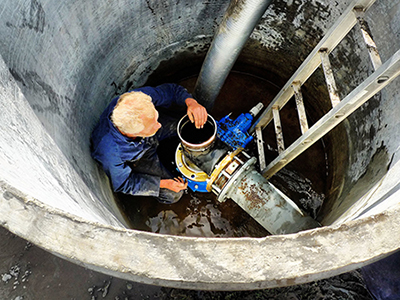Let's talk about infrastructure
 Councils across the country are responsible for the services delivered by some of our most critical infrastructure – the roads that we drive on, the water that we drink, and the systems that take our wastewater away. Without this infrastructure we would not enjoy the quality of life that New Zealanders expect.
Councils across the country are responsible for the services delivered by some of our most critical infrastructure – the roads that we drive on, the water that we drink, and the systems that take our wastewater away. Without this infrastructure we would not enjoy the quality of life that New Zealanders expect.
These services need to be delivered in a way that is both affordable and meets our needs, now and in the future. It sounds simple, but there’s a lot to consider when it comes to meeting our needs – there are environmental obligations, cultural responsibilities, climate change impacts, change in population, being resilient to natural hazard events and safety is paramount (to name but a few considerations!).
Lately I’ve noticed that each time someone starts to talk about local government infrastructure it comes with an apology that the topic is either unpleasant or just not all that interesting. An article I watched on TV in the weekend about wastewater treatment caveated the item as ‘not a nice topic but a critical Council function’.
However, there are moments where the response to a conversation about infrastructure is encouraging. About a month ago, I was speaking to a select committee about how well local authorities manage their infrastructure. The conversation started slowly but picked up momentum and there was widespread recognition by the end of the briefing that ‘this stuff is really interesting’. I couldn’t agree more, and I’ll even suggest that we need to be talking about this topic a whole lot more.
Some of the best conferences I’m lucky enough to attend are with asset engineers – I come away excited because the amount of innovation and passion in the room is high. But at the Water New Zealand Conference last year there was one presentation that made me realise that the discussions that take place at these conferences are not always happening back home in council environments. During a presentation, one participant noted that he had never been invited to speak to the appropriate committee at his council to discuss how he manages the risks around providing their district with safe drinking water. I was surprised to hear that. I thought the discussion about reliable and safe supply of services would be a regular conversation, especially after the Havelock North drinking water contamination incident.
At the Office of the Auditor-General, we have often expressed our expectation that elected members should be making deliberate and well-informed decisions about how best to manage the assets they govern. To do so, they need to be having the right conversations with the right people at the right time. They also need relevant and reliable information about those assets in order to make decisions about them. This can’t be delivered by the asset manager alone, but needs input from all council functions, including the finance team and the planners.
Last year, we published a report on the lessons we had learned from five local authorities about how they get the right information to effectively manage their public assets. We found that councils have more to do to formally identify their most important assets to enable them to prioritise gathering information about them. Without this information, there is a risk that local authorities are not going to make the right investment decisions about their assets at the right time. There needs to be more discussion about this – it’s important and it can be very interesting!
Check out some of our other related reports:
